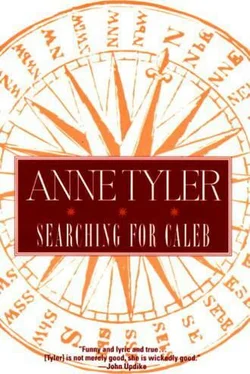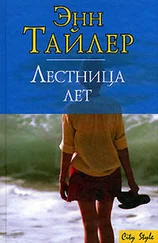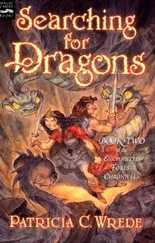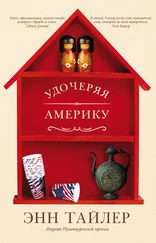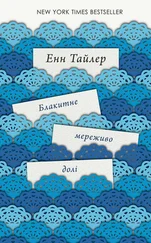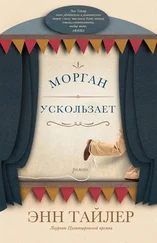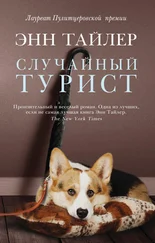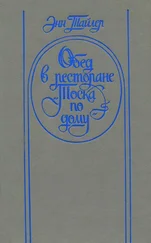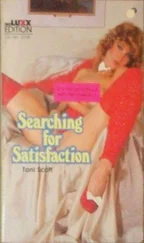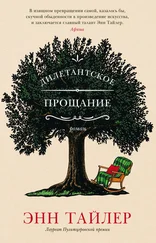Aunt Lucy gave her a look of pure hatred, there was no other way you could put it.
Justine was miserable. She would much rather tell and be done with it. But even if the grownup rules were different, Duncan was still playing by the old ones and he would be furious if she told. She hoped he would come home by himself—“turn himself in” was how she thought of it. Or that Uncle Two, strolling the Hopkins campus with false nonchalance during class break, would run across Duncan on his own. But Duncan didn’t come and he wasn’t seen on campus, and Uncle Two didn’t want to ask at the Dean’s office outright and involve other people in family matters. “You owe it to us to tell, Justine,” he said. His face was tired and gaunt and there were shadows under his eyes. Aunt Lucy wasn’t speaking. Even the cousins looked at Justine with a new edginess. How had she got herself into this? All she wanted was for the family to be happy together. That was the only reason she had run after Duncan in the first place.
She felt like someone who takes a single short step on solid ice and then hears a crack. She was halfway onto a drifting floe, one foot pulling out to sea and the other still on shore.
Then her grandfather said, “Have you been to see him?”
“Oh, I don’t think he’d like me to, Grandfather.”
“Why not? You’re his cousin.”
“I know.”
“Yes, well,” her grandfather said, and he pulled at his nose. “Well, never mind that. Go anyway. It’s the only way we’ll get any peace around here.”
“Go visit him?”
“You didn’t promise not to do that , did you? Go ahead. Don’t worry, nobody will follow you.”
But Justine half hoped someone would follow. Then life could get back to normal.
She knew the address because she had often gone with Duncan to the bookshop he mentioned — a cluttered place with creaky floorboards and great tilting stacks of used technical books. To the left of the shop was a paper sign, orange on black, saying ROOMS. When she opened the door she found narrow wooden steps, and at the top of the steps a dark hall with a toilet at the end. The doors reminded her of school, all thickly painted with scuffproof brown and marked off with curly metal numbers. But she should have brought a flashlight to read the nameplates by. She moved down the hall very slowly, hunching her shoulders against a feeling of unknown things at the back of her neck, peering at the names scrawled on scraps of ruled paper or adhesive tape: Jones, Brown, Linthicum, T. Jones. No Peck. Only a door to her right with nothing at all, no name in the slot. And that, of course, would be Duncan.
She knocked. When he opened the door she held onto her hat, like someone who has just pressed a fun-house button with no notion of what to expect. But all Duncan said was, “Justine.”
“Hello,” she said.
“Was there something you wanted?”
“I’m supposed to see if you’re all right.”
“Well, now you’ve seen.”
“Okay,” she said, and turned to go.
“But you might as well come in, I guess. Since you’re here.”
His room was small and dingy, with stained wallpaper, a flapping torn shade, a speckled mirror, and a metal bed with a sagging mattress. Over in one corner was his cardboard box. He wore the clothes he had left home in, brown suit pants and a white shirt without a tie. He seemed thinner. “It doesn’t look as if you’re eating right,” Justine said.
“Is that what you came to tell me?”
“No.”
She sat down very delicately on the edge of the bed. She lifted both hands to her hat, making sure it was perfectly level. For some reason, Duncan smiled.
“Well!” she said finally.
Duncan sat down next to her.
“Your mother is really taking on, Duncan. She’s crying where everyone can see her. Your father is—”
“I don’t want to hear about that.”
“Oh. Well—”
“ I know what they’re doing. I always know, I can tell, I can see as if I’m sitting there. They’re talking about someone in the outside world. They’re digging the moat a little deeper. They’re pointing out all the neighbors’ flaws and their slipping dentures and mispronunciations, they’re drawing in tighter to keep the enemy out. Why do you think my mother’s crying? Because she misses me? Did she say that? Think a minute. Did she? Did any of them? No. They’re worried I might be with the wrong kind of people. They’re upset to think a Peck is out there in the world someplace. I’ve lowered the drawbridge.”
“Oh no , Duncan—” Justine said.
“Everything they do is calculated to keep others at a safe distance. Everything. Look at your hat!”
Justine’s hands went up again, uncertainly.
“No, no, it’s fine. It’s a fine hat,” he told her. “But what are you wearing it for?”
“Why, I always— ”
“Yes, but why? Did you ever take a good look around you? Only old ladies wear hats any more, outside of church. But every woman in our family, even little girls, they all wear hats even if they’re just off to the side yard for a breath of air. ‘A lady doesn’t go without a hat, my dear. Only common people.’ Common! What’s so uncommon about us? We’re not famous, we’re not society, we haven’t been rich since 1930 and we aren’t known for brains or beauty. But our ladies wear hats, by God! And we all have perfect manners! We may not ever talk to outsiders about anything more interesting than the weather but at least we do it politely! And we’ve all been taught that we disapprove of sports cars, golf, women in slacks, chewing gum, the color chartreuse, emotional displays, ranch houses, bridge, mascara, household pets, religious discussions, plastic, politics, nail polish, transparent gems of any color, jewelry shaped like animals, checkered prints . . . we’re all told from birth on that no Peck has had a cavity in all recorded history or lost a single tooth; that we’re unfailingly punctual even when we’re supposed to come late; that we write our bread-and-butter notes no more than an hour after every visit; that we always say ‘Baltimore’ instead of ‘Balmer’; that even when we’re wearing our ragged old gardening clothes you can peek down our collars and see ‘Brooks Brothers’ on the label, and our boots are English and meant for riding though none of us has ever sat on a horse . . . ”
He wound down like Great-Grandma’s old Graphophone, and slumped forward suddenly with his long hands drooping between his knees.
“But Uncle Two is so sad, ” said Justine. “He wanders around the Homewood campus all day hoping to—”
“Justine. Will you please get out? ”
She rose immediately, clutching her little suede purse. But in the doorway Duncan said, “Anyhow, thanks for coming.”
“Oh, you’re welcome.”
“I meant it, Justine. I’m sorry I . . . really, if you wanted to come back sometime I wouldn’t mind.”
“Well, all right,” Justine said.
Then of course when she got home everyone was furious with her, because she hadn’t found out one concrete fact. What was he living on? Where was he eating? Was he going to school? Who were his companions?
“I just know he’s taken up with some — trash, he does have such peculiar taste in friends,” Aunt Lucy said.
And all of them wondered at Justine’s sudden look of sorrow.
* * *
What Duncan was living on was a pittance paid him by a Hopkins professor. He was double-checking dry facts in a library, and then writing them into the blanks the professor had left in a very long, tedious book on paleobotany. He was eating saltines and peanut butter, washed down with a quart bottle of milk in his room. He had no companions at all, not even Glorietta, with whom he had had a terrible fight several months ago over her habit of saying “between you and I.” Eventually he was going to go very far away, perhaps to British Columbia, but at the moment it seemed he just couldn’t get up the energy. And no, he was not attending school any more. He was not even reading Dostoevsky, whose writing suddenly appeared to have the squirmy, eye-straining texture of plant cells. As a matter of fact, he thought he might be going crazy. He even liked the idea of going crazy. He waited for insanity as if it were some colorful character his parents had always warned him against, but every morning when he woke up his mind was the same efficient piece of machinery it had always been and he felt disappointed.
Читать дальше
